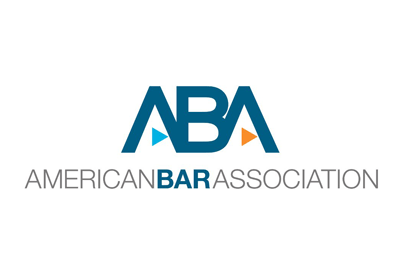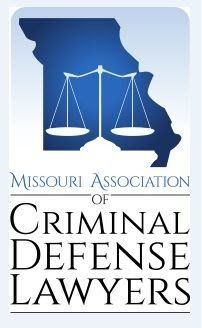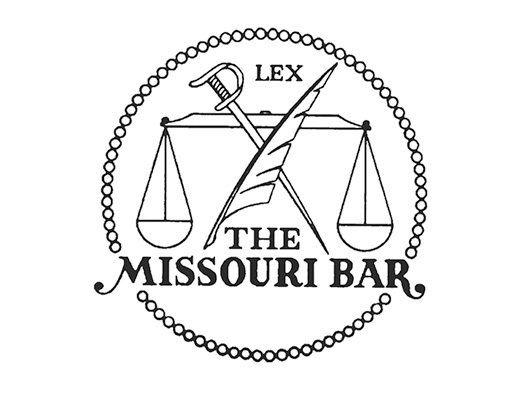RECORD EXPUNGEMENT ATTORNEY
Jefferson County, MO Criminal Record Expungement
Contact Lednick Law to Have Your Record Expunged
Expungement is a court-ordered process in which the legal record of an arrest or a criminal conviction is “sealed,” or erased in the eyes of the law. The effect of an expungement is to restore such person to the status he or she occupied prior to an arrest, plea or conviction as if such event had never happened.
The availability of expungement, and the procedure for getting an arrest or conviction expunged, will vary according to the type of charge as well as a number of other factors. Contact the Lednick Law Firm at 636-638-2150 to learn more.
Why Should I Have My Record Expunged?
- Having a felony or a misdemeanor charge on your criminal record can be detrimental to your ability to:
Find a job - Vote
- Purchase or carry a firearm
- Rent a home or apartment
- Take advantage of education opportunities
What Criminal Offenses May Be Expunged Under Current Missouri Law?
Driving While Intoxicated (DWI)
Missouri law allows expungement of a DWI arrest, plea or conviction to be expunged after a period of ten (10) years assuming the following conditions are met:
- The DWI being expunged must be your first and only
- The charge must have been a misdemeanor
- The petitioner must have no additional alcohol-related convictions or alcohol-related enforcement contacts
Minor in Possession of Alcohol (MIP)
Missouri law allows expungement of a MIP arrest, plea and conviction to be expunged if the following conditions are met:
- It must be the first time you have to plead or been found guilty of a MIP
- The petition must be filed after a period of not less than one year after reaching the age of 21
- You must have no other alcohol-related convictions or alcohol-related enforcement contacts
Additional offenses which may be expunged under current Missouri law include:
- Gambling
- Private peace disturbance
- Drunkenness or drinking in prohibited places
- Any class B or C misdemeanor offenses of peace disturbance
- Any felony or misdemeanor offense of passing a bad check
- Any felony or misdemeanor offense of fraudulently stopping payment of an instrument
- Any felony or misdemeanor offense of fraudulent use of a credit device or debit device
- Negligent burning or exploding
- Tampering in the second degree
- Property damage in the second degree by knowingly damaging
- Property of another
- Trespass in the first degree
Expungement FAQ's
Can't Find the Answers?
Fill all information details to consult with our best
Attorneys advices.
Contact Us
Criminal Offenses That Are Not Eligible to be Expunged Under the New Missouri Law
- Any class A felony
- Any dangerous felony, including:
- Arson in the first degree
- Assault in the first degree
- Attempted rape in the first degree with physical injury
- Attempted forcible rape with physical injury
- Attempted sodomy in the first degree with physical injury
- Attempted forcible sodomy with physical injury
- Rape in the first degree
- Forcible rape
- Sodomy in the first degree
- Forcible sodomy
- Assault in the second degree if the victim of such assault is a special victim
- Kidnapping in the first degree
- Kidnapping
- Murder in the second degree
- Any dangerous felony, continued:
- Assault of a law enforcement officer in the first degree
- Domestic assault in the first degree
- Elder abuse in the first degree
- Robbery in the first degree
- Statutory rape, first degree when the victim is less than twelve years of age
- Statutory sodomy, first degree when the victim is a child less than twelve years
- Child molestation in the first or second degree
- Child pornography
- Abuse of a child if the child dies as a result of injuries
- Child kidnapping
- Parental kidnapping (some instances)
- Intoxication-related traffic or boating offenses if a habitual offender
- Offenses involving the operation of a motor vehicle by an individual who holds a commercial driver’s license.
- Any offense that requires registration as a sex offender
- Any felony offense where death is an element of the offense.
- Any felony offense of assault; misdemeanor or felony of domestic assault or felony offense of kidnapping.
- Any intoxication-related traffic or boating offenses other than first-time offenses.
- Any ordinance violation that is the substantial equivalent of any offense that is not eligible for expungement under this section.
- Any violations of any state law or county or municipal ordinance regulating the operation of motor vehicles when committed by an individual who has been issued a commercial driver’s license or is required to possess a commercial driver’s license issued by this state or any other state.
Criminal offenses not eligible for Expungement, Continued:
- Abandonment of a child, first degree
- Abandonment of a child, second degree
- Abandonment of a corpse without notifying authorities
- Abortion of viable unborn child
- Abortion performed by other than a physician with surgical privileges at a hospital
- Abuse or neglect of a child
- Age misrepresentation with intent to solicit a minor
- Agroterrorism
- Aiding a sexual offender
- Aiding escape of a prisoner
- Allow a person other than a licensed physician to perform or induce an abortion.
- Arson in the second degree
- Assault on a police animal
- Burglary in the first degree
- Bus hijacking
- Child abduction
- Child molestation, third-degree
- Child molestation, fourth degree
- Child used in sexual performance
- Class one election offenses
- Cross burning
- Defrauding secured creditors
- Delivery or concealment of controlled substances in a correctional
- Facility
- Disarming a peace officer or correctional officer
- Discrimination or intimidation relating to elections
- Endangering a corrections employee
- Endangering a mental health employee, visitor, or another offender
- Endangering the welfare of a child in the first degree
- Enticement of a child
- Escape from commitment, detention, or conditional release
- Escape or attempted escape from custody
- Escape or attempted escape from confinement
- Failure to return to confinement
- Forgery
- Fraudulent insurance act
- Fraudulent purchase of a firearm
- Fraudulent use of a credit device or debit device
- Genital mutilation of a female child
- Identity theft
- Incest
- Kidnapping, third-degree
- Killing or disabling a police animal
- Knowingly burning or exploding
- Knowingly exposing another to HIV
- Making a terrorist threat, first degree
- Making a terrorist threat, second degree
- Money laundering
- Mortgage fraud
- Negligent burning or exploding
- Negligent setting fire or allowing to escape
- Perjury
- Permitting escape
- Pharmacy robbery
- Planting a bomb or explosive in or near a bus or terminal
- Possession of a forging instrumentality
- Possession of firearm unlawful for certain persons
- Possession, manufacture, transport, repair, sale of certain weapons
- Promoting civil disorder in the first degree
- Promoting online sexual solicitation
- Promoting a sexual performance by a child
- Property damage in the first degree
- Psychiatric offender committing violence against an employee
- Rape, second degree
- Recklessly burning or exploding
- Robbery in the second degree
- Sexual abuse, first degree
- Sexual abuse, second degree
- Sexual conduct with a nursing facility resident or a vulnerable person, first degree
- Sexual conduct with a nursing facility resident or a vulnerable person, second degree
- Sexual contact or intercourse with skilled nursing facility residents
- Sexual contact with a student
- Sexual misconduct, first degree
- Sexual misconduct, second degree
- Sexual misconduct involving a child
- Sexual offender residing within one thousand feet of a school or child care facility
- Sexual offender serving as athletic coaches, managers, or trainers
- Sexual offender within five hundred feet of a child care facility
- Sexual offender within five hundred feet of school property
- Sexual offender within five hundred feet of a public park or swimming pool
- Sexual trafficking of a child, first degree
- Sexual trafficking of a child, second degree
- Sex with an animal
- Sodomy in the second degree
- Statutory rape, second degree
- Statutory sodomy, second degree
- Stealing
- Tampering with a judicial officer
- Trafficking for the purpose of sexual exploitation
- Trafficking in children
- Trafficking in stolen identities
- Trespass to railroad property
- Unlawful possession of an explosive weapon
- Unlawful use of weapons
- Unlawful transfer of weapons
- Use or possession of a metal-penetrating bullet during the commission of a crime
- Violation of an order of protection
- Violence to a mental health employee or offender
- Vulnerable person abuse in the third degree
- Water contamination



